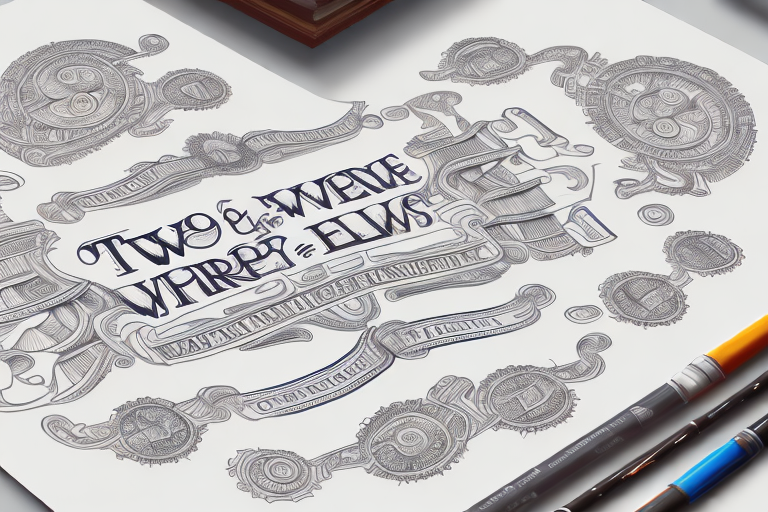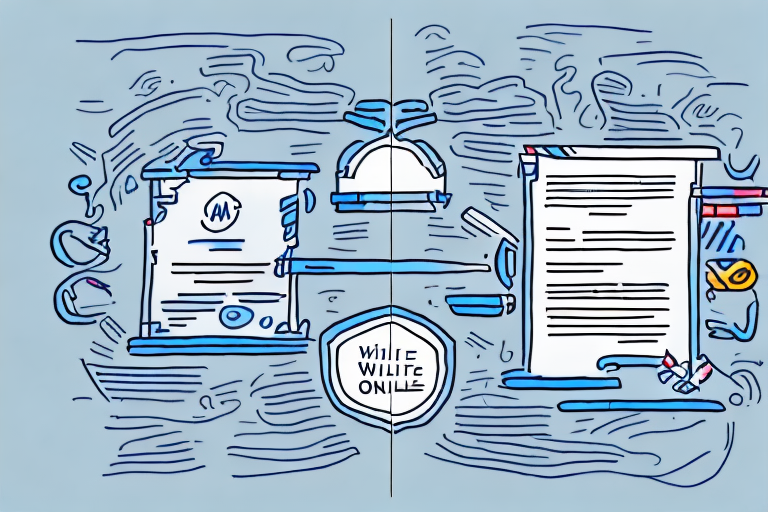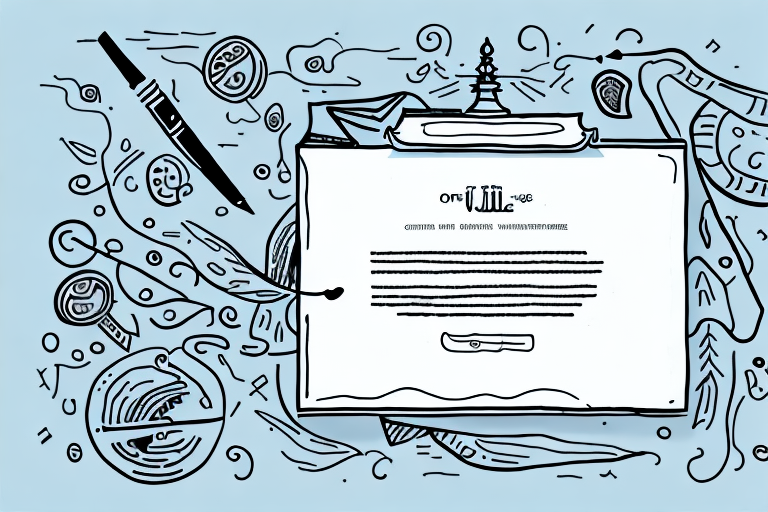Online Wills vs Traditional Wills: A Comparative Study
When it comes to estate planning, creating a will is one of the most important steps. A will ensures that your assets are distributed according to your wishes after your death, and it can also help minimize taxes and avoid disputes among family members. While traditional wills have been around for centuries, more and more people are turning to online wills. In this article, we’ll explore the pros and cons of both traditional and online wills, as well as the costs and time investment required to create each one.
Understanding Wills: A Brief Overview
Before we dive into the differences between wills online Australia and traditional wills, let’s take a step back and review what a will actually is and why it’s important.
What is a Will?
A will is a legal document that outlines your wishes for how your assets should be distributed after your death. It can also name an executor who will be responsible for carrying out your wishes. A will can be as simple or as complex as you need it to be, depending on the size of your estate and your specific wishes.
It’s important to note that a will only takes effect after your death. Until then, you are free to change or update your will as needed. In fact, it’s a good idea to review your will periodically to ensure that it still reflects your wishes and that your assets are distributed as you intended.

The Importance of Having a Will
Creating a will is crucial to ensuring that your assets are distributed according to your wishes. Without a will, your assets will be divided according to state laws, which may not align with your wishes. This can lead to unintended consequences, such as family members receiving a smaller inheritance than you intended or assets being distributed in a way that you wouldn’t have wanted.
A will also allows you to name a guardian for any minor children you may have. This is especially important if you are a single parent or if both parents were to pass away at the same time. By naming a guardian in your will, you can ensure that your children will be taken care of by someone you trust and who shares your values.
In addition to naming a guardian, a will can help minimize taxes and avoid disputes among family members. By clearly outlining your wishes, you can help prevent disagreements and ensure that your assets are distributed fairly and without conflict.
Key Components of a Will
A will typically includes the following components:
- Identification of the executor: This is the person who will be responsible for carrying out your wishes. It’s important to choose someone who is trustworthy and who will act in your best interests.
- Identification of beneficiaries and how assets should be distributed: This is where you outline who will receive your assets and how much they will receive. You can be as specific or as general as you like, but it’s important to be clear to avoid confusion or disputes.
- Designation of a guardian for minor children: If you have minor children, this is where you will name a guardian to take care of them in the event of your death.
- Instructions for any remaining assets: If you have any assets that are not specifically named in your will, you can use this section to provide instructions for how they should be distributed.
- Signature and witnesses: In order for your will to be considered legally binding, it must be signed by you and witnessed by at least two other people who are not beneficiaries of your will.
Overall, creating a will is an important step in ensuring that your assets are distributed according to your wishes and that your loved ones are taken care of after your death. By understanding the key components of a will and the importance of having one, you can take control of your estate and provide peace of mind for yourself and your family.
Traditional Wills: Pros and Cons
When it comes to estate planning, creating a will is an important step in ensuring that your assets are distributed according to your wishes after you pass away. One option for creating a will is a traditional will, which involves working with an attorney to draft the document. While there are advantages and disadvantages to this approach, it can be a good option for those who want a more customized and comprehensive estate plan.
The Process of Creating a Traditional Will
Creating a traditional will typically involves hiring an attorney and working with them to draft the document. The attorney will ensure that the will meets state laws and is legally binding. This can be a time-consuming and expensive process, but it can also provide peace of mind knowing that your will is legally sound and meets all necessary requirements.
During the process of creating a traditional will, you will work closely with your attorney to identify your assets and beneficiaries, as well as any specific instructions or requests you have for the distribution of your estate. Your attorney can also help you navigate any complex legal issues that may arise during the process.
Advantages of Traditional Wills
One advantage of traditional wills is that they are typically more customizable. An attorney can help you create a will that is tailored to your specific needs and wishes. This can include provisions for the care of minor children, the distribution of specific assets, and any charitable donations you wish to make.
Traditional wills also tend to be more thorough and comprehensive. Your attorney can help you identify any potential issues or challenges that may arise during the distribution of your estate, and can work with you to address these issues in your will. This can help ensure that your wishes are carried out as you intended.

Disadvantages of Traditional Wills
The main disadvantage of traditional wills is the cost and time investment required. Hiring an attorney to create a will can be expensive, and it can take several weeks or even months to complete the process. Additionally, traditional wills may not be as accessible as online wills, making it more difficult to make updates or changes as needed.
Another potential disadvantage of traditional wills is that they may not be as flexible as other estate planning options. For example, if you have a change in your family or financial situation, you may need to update your will to reflect these changes. This can require additional time and expense.
In conclusion, while traditional wills may require a significant investment of time and money, they can provide a more comprehensive and customized estate plan. Working with an experienced attorney can help ensure that your wishes are carried out and that your loved ones are provided for after you pass away.
Online Wills: Pros and Cons
The Process of Creating an Online Will
Creating a will is an essential part of estate planning. It ensures that your assets are distributed according to your wishes after your death. Traditionally, creating a will involved scheduling appointments with attorneys and spending hours discussing your estate plan. However, with the rise of technology, creating a will has become a faster and less expensive process.
Creating an online will is typically a faster and less expensive process than creating a traditional will. Online services provide templates and step-by-step guidance to help you create a legally binding will. This can be done from the comfort of your own home, and may only take a few hours. The templates provided by online services are designed to cover most common situations, making the process easy and straightforward.
Advantages of Online Wills
One advantage of online wills is the convenience factor. You don’t need to spend time scheduling appointments with attorneys or taking time off from work to meet with them. Online wills are also typically less expensive than traditional wills. This is because online services do not have the same overhead costs as traditional law firms.
Another advantage of online wills is that they can be updated easily. Life is unpredictable, and your circumstances may change over time. With an online will, you can easily make changes and updates to your estate plan as needed. This can be especially important if you have children or if your financial situation changes.

Disadvantages of Online Wills
One disadvantage of online wills is that they may not be as customizable as traditional wills. Online services may not be able to address specific needs or circumstances. For example, if you have a complex estate or if you own property in multiple states, an online will may not be sufficient. In these cases, it may be necessary to consult with an attorney to create a comprehensive estate plan.
Additionally, online wills may not be as thorough or comprehensive as traditional wills. While online services provide templates to cover most common situations, they may not address all of your unique needs. This can lead to confusion and disputes among your beneficiaries after your death.
Finally, the legality of an online will may not be upheld in certain states or jurisdictions. Laws regarding wills and estate planning vary by state, and some states may not recognize online wills as legally binding. It is important to research the laws in your state before creating an online will.
In conclusion, online wills can be a convenient and cost-effective way to create a basic estate plan. However, they may not be sufficient for everyone. If you have a complex estate or unique circumstances, it may be necessary to consult with an attorney to create a comprehensive estate plan.
Comparing Costs and Time Investment
Cost of Traditional Wills vs Online Wills
The cost of a traditional will varies depending on the complexity of the document and location. In general, traditional wills can cost anywhere from a few hundred dollars to several thousand. Online wills, on the other hand, tend to be much less expensive, with prices ranging from free to a few hundred dollars.
Time Required for Traditional Wills vs Online Wills
The time required to create a traditional will can vary depending on complexity and scheduling with an attorney. It can take several weeks or even months to complete the process. Online wills, however, typically take only a few hours to complete.
Conclusion
Choosing between online and traditional wills ultimately comes down to personal preference and circumstances. Traditional wills may offer more customization and thoroughness, but require a greater time and financial investment. Online wills offer convenience and affordability, but may not be as comprehensive or legally binding in certain jurisdictions. Whichever option you choose, it’s important to ensure that your wishes are clearly outlined and legally binding to ensure that your assets are distributed according to your wishes.


